Add salt to boiling water. Many people think that if you add salt to the water on the stove, it will make the water boil faster. This is not true. The salt however causes the water to boil at a higher temperature, thereby reducing the cooking time.
Salt is useful for the preparation of sunny side up eggs. Because the temperature of the salt increases the boiling point of water, it helps the whites become available more quickly when the eggs are placed in the water.
Check out if you have fresh eggs. Add two teaspoons of salt in a glass of water and place the egg inside. Fresh eggs sink, while older ones rise to the water surface. This occurs because the amount of air in the egg increases with time. This does not mean that the floating egg is rotten, but only that it is older. Break the egg into a bowl and see if it looks or smells strange - if rotten, your nose will give you a clue.
Do not let the fruits fade. Most people use lemon or vinegar to prevent peeled apples and pears to darken. However, you can let them indulge in little salted water to help them keep their color.
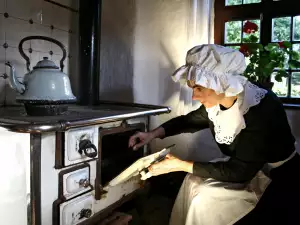
Peeling walnuts. Soak walnuts in salted water a few hours before removing the shell, to facilitate the removal of nuts.
Prevent the icing on the cake to crystallize. Add a little salt to the icing to prevent it getting crystallized.
Remove odors from your hands. Your fingers smell like onions or garlic? You can also rub them with a mixture of salt and vinegar.
Add a pinch of salt when beating egg whites or cream to achieve faster and greater results.
Extend the life of cheese. To prevent moldy cheese, wrap it in a cloth soaked in salted water before you put it in the fridge.
Save the bottom of your oven. If a dish swells excessively in the oven and spills, put a little salt on the spill. Then, it will not smoke or smell and is much easier to clean the oven cools.
Clean your sink. Regularly pour hot salted water in the sink to remove odors and to prevent the accumulation of fat in the pipes.
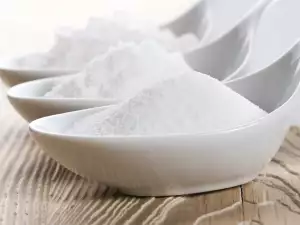
Remove rings from wood tables. Gently rub a mixture of salt and vegetable oil on the white marks left by glasses or hot pots.
Clean burnt pans. Iron pans can be cleaned with a little salt and paper towels.
Cleaning glasses. Mix salt with a little detergent for washing dishes and gently rub to remove stubborn stains from coffee and tea.
Cleaning refrigerators. Dissolved in water, salt and baking soda can be used to clean the interior of the refrigerator and remove odors. This is also a good way to not use cleaners containing chemicals near food.
Cleaning brass and copper. Mix equal parts of salt, flour and vinegar and apply the resulting cream on the metal. Allow to react for one hour, then remove it with a soft cloth or brush. Buff with a dry cloth.
Clean a glass coffee pot. This is a favorite trick of every waitress in a diner. Put salt and ice cubes in a jar, shake it vigorously and rinse. Salt polishes the bottom and ice helps better cleaning.
Spilled wine. If you spilled wine on a cotton or linen tablecloth, blot as much as possible and immediately cover the stain with salt - it will help so the wine is not absorbed into the fabric. After dinner, soak the tablecloth in cold water for 30 minutes before you wash it.
Drying clothes in winter. In the event that you dry your clothes outside in the winter add salt to the final rinse to prevent clothes from freezing.
Brighten colors. Wash colored curtains or rugs in salted water to nourish color. You can restore the color of faded carpet and quickly rub it with a cloth dipped in heavily salted water, then pass over it with a vacuum cleaner.
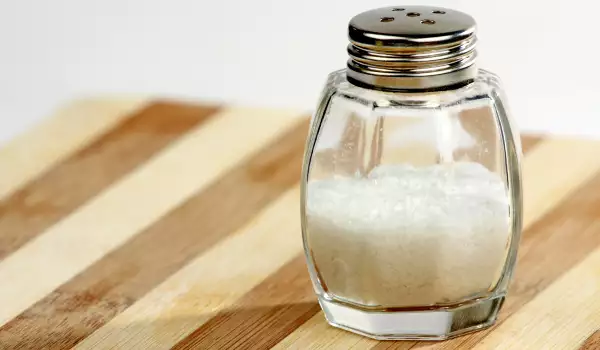

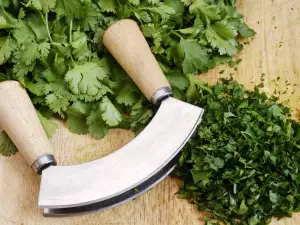




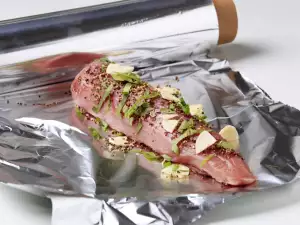







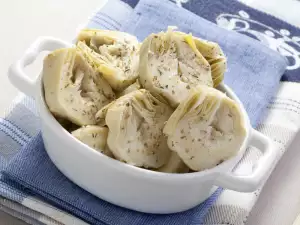




Comments